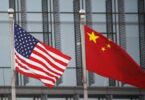Mark Jamison
Sen. Amy Klobuchar (D-MN) and retired US Army Gen. Wesley Clark teamed up in an Open Markets Institute forum to argue in support of current efforts in Congress to rewrite the meaning of antitrust in the US. These efforts include Klobuchar’s American Innovation and Choice Online Act (AICOA), the Competition and Antitrust Law Enforcement Reform Act (CALERA), and the Open App Markets Act (OAMA).
Klobuchar and Clark are certainly entitled to their opinions on the legislation, and I have stated mine on more than one occasion. But as former Sen. Daniel Patrick Moynihan (D-NY) wrote, “Everyone is entitled to his own opinion, but not his own facts.” Klobuchar and Clark’s arguments contained factual errors, such as Clark’s claim that trust-busting opened the US economy. Academic studies have found that antitrust has often had the opposite effect, as has regulation in general.
Another factual error was their claim that a recent Department of Defense (DOD) study supports the notion that limiting the size of Big Tech companies would improve national security. Klobuchar and Clark are wrong: Not only does the study not address that assertion, it also does not make a case for any of the restrictions contained in the bills before Congress.
The study is about the state of competition in key industries supporting national defense. Its concern, based on a 2002 report, is that “since the 1990s, the defense sector has consolidated substantially, transitioning from 51 to 5 aerospace and defense prime contractors.” The five left standing are Boeing, General Dynamics, Lockheed Martin, Northrop Grumman, and Raytheon. None of these companies are Big Tech. Indeed, the examples of industry consolidation that concern the DOD, as shown in Table 1 of the study, include the five companies above, plus AM General, Bell Textron, Hughes, Huntington Ingalls, General Motors, and Oshkosh. Again, no Big Tech companies.
The DOD study went on to list the sectors about which it has concerns with insufficient competition. The five industries it lists include castings and forgings, missiles and munitions, energy storage and batteries, strategic and critical materials, and microelectronics. None of these industries pertain to Big Tech, except maybe microelectronics. But the DOD’s concerns with microelectronics are unrelated to antitrust. Rather, the concerns are that the department is too small of a purchaser of microelectronics to get industry attention, domestic supply is shrinking, few manufacturers are willing to meet the DOD’s assurance and security protocols, and China is expanding its influence in the sector. None of these concerns imply that we need smaller US companies, as CALERA would create; that we need to restrict business models for Big Tech platforms, as AICOA seeks; nor that we need to regulate app stores, as OAMA would do.
The study had several recommendations for improving the DOD’s situation. They include strengthening merger oversight, limiting suppliers’ intellectual property and data rights, attracting new suppliers, creating opportunities for small business, and developing supply chain resiliency plans in the five industries listed above. Except for the merger issue, these are all actions that the DOD can take on its own and says it will take.
Regarding the DOD’s views on merger oversight, the study doesn’t cite an allowed merger that the DOD opposed. And the study admits that there is no evidence that past mergers have hindered market performance. Indeed, the DOD’s competition concerns are speculations regarding reduced supply, innovation, and performance as well as possible supply chain issues:
Although studies of this [merger] trend have not found a strong correlation between consolidation and increased program pricing, additional risks beyond pricing come with consolidation. Growing concentration can reduce the availability of key supplies and equipment, diminish vendors’ incentives for innovation and performance in government contracts, and lead to supply chain vulnerabilities.
Addressing these speculative issues does not require more restrictive merger oversight, as they are within the DOD’s control. The department can choose to spread contracts around to more suppliers, including those that may not presently supply the products that the DOD wants. If the defense industries truly lack innovation, the DOD can reinvigorate its relationships with innovators, but studies have found that corporate research centers would need to play crucial roles. The DOD may have some supplier issues, but its problems are not related to antitrust. Klobuchar and Clark were incorrect to state otherwise.
Courtesy: (AEI.org)






